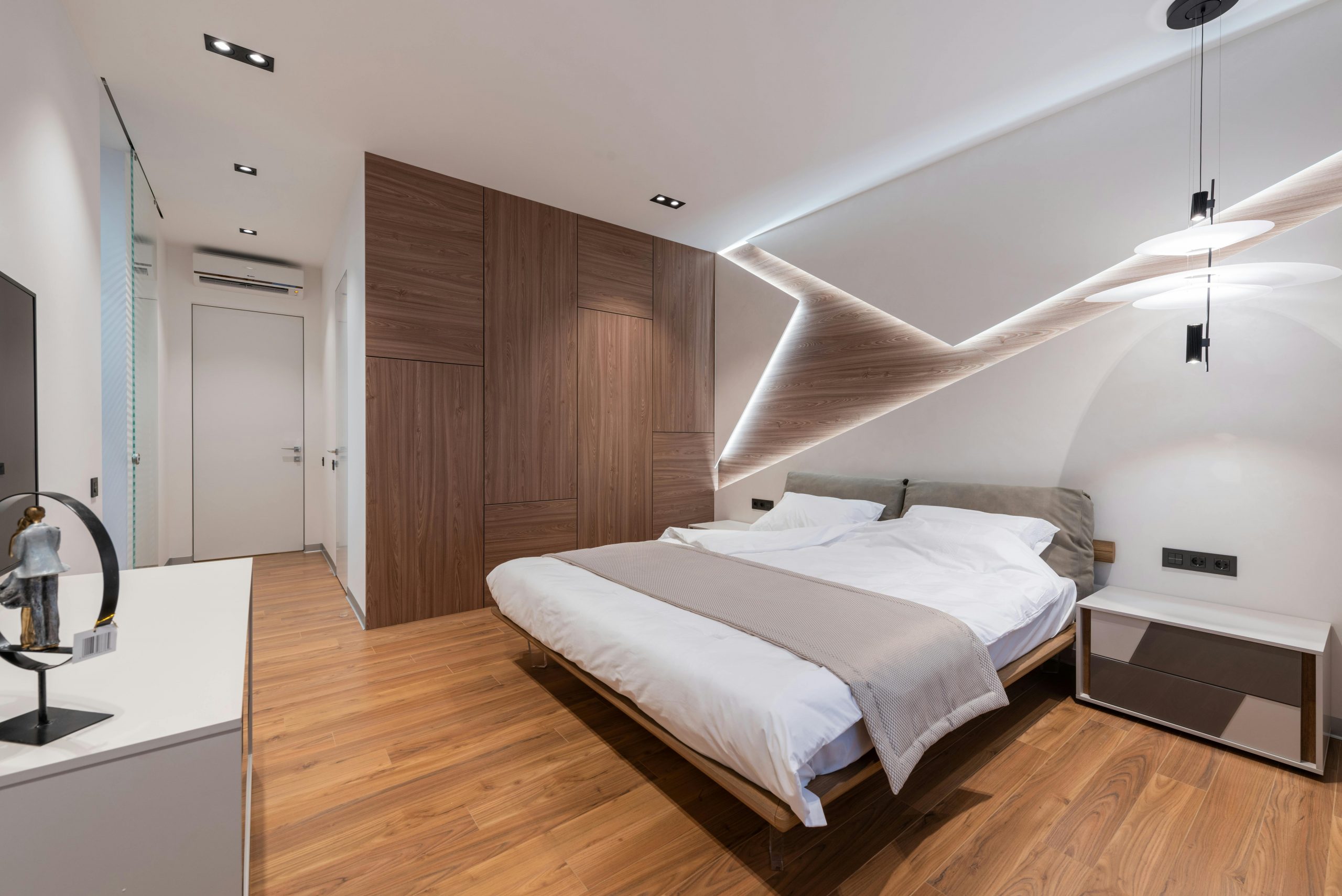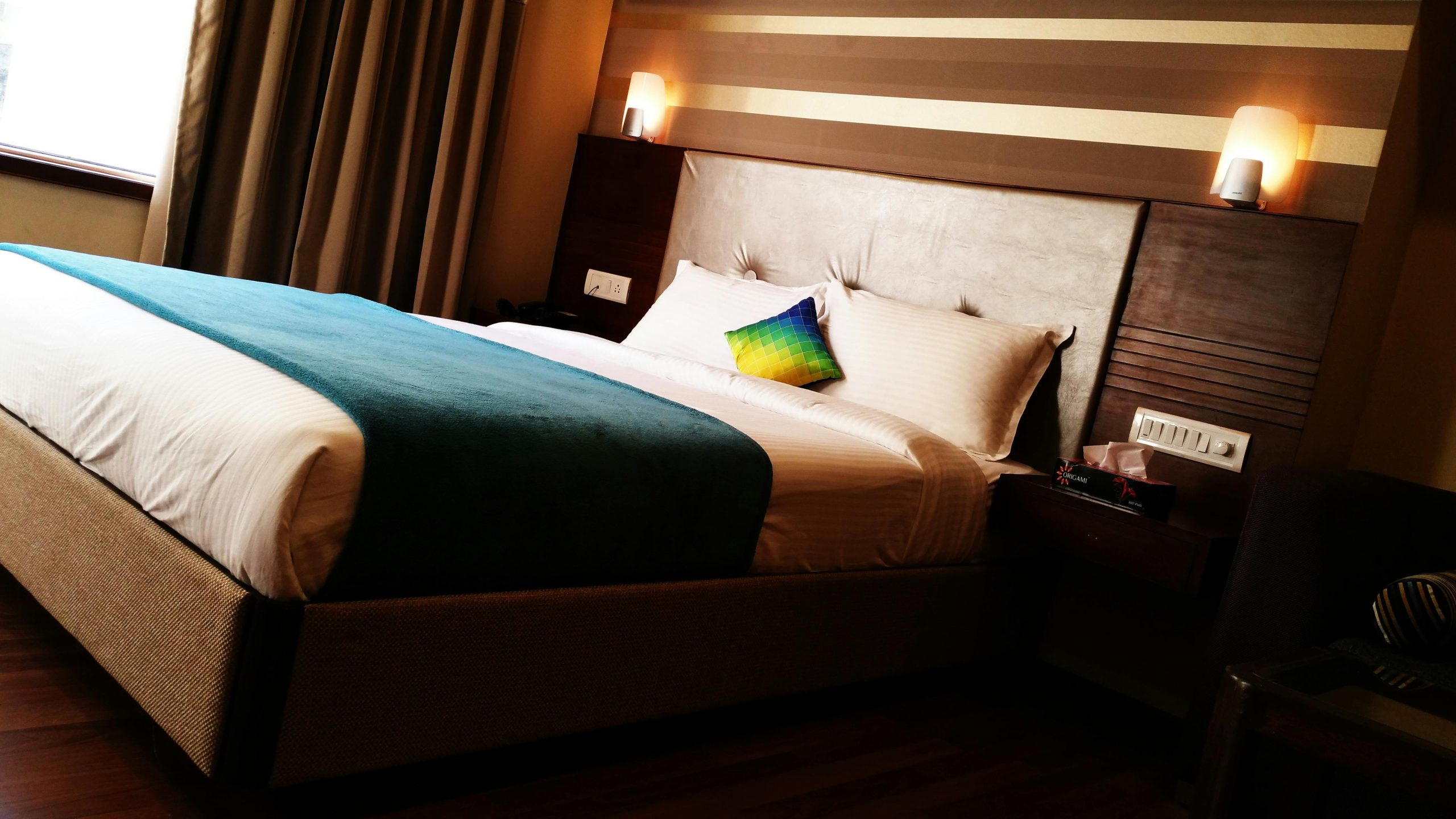
Traveling should be enjoyable, stress-free, and accessible for everyone—including those who are deaf or hard of hearing. While many hotels claim to offer accessibility, the reality is that hearing accessible rooms vary widely in what they provide. If you’ve ever arrived at your destination only to discover a room that didn’t actually meet your needs, you’re not alone.
This guide will help you confidently book a hearing accessible room that truly supports your comfort and safety, no matter where you’re traveling.
What Is a Hearing Accessible Room?
Before you can book one, it’s essential to understand what a hearing accessible room actually includes.
A hearing accessible room is designed to accommodate guests who are deaf or hard of hearing. While it often looks like a standard room, it’s equipped with visual and tactile alert systems that replace or enhance audible signals.
Common features include:
- Visual fire alarms and smoke detectors
- Flashing doorbell or knock alert system
- Visual phone ring indicators or TTY-compatible phones
- Amplified telephones
- Closed-captioning enabled TVs
- Vibrating alarm clocks or bed shakers
However, not all hearing accessible rooms are created equal. Some only offer basic compliance features, while others provide a more comprehensive, user-friendly setup.
Why Booking the Right Room Matters
Booking the right room goes beyond convenience—it’s about safety, independence, and peace of mind.
Whether you’re a solo traveler, visiting family, or attending a conference, the right hearing accessible accommodations:
- Help you respond to emergency alerts in real-time
- Ensure you don’t miss important notifications or knocks
- Reduce the anxiety of navigating unfamiliar spaces
- Improve your overall hotel experience
Step-by-Step: How to Book a Hearing Accessible Room That Actually Delivers
Booking a hearing accessible room can sometimes feel like a guessing game. Here’s how to take control of the process and ensure your hotel stay meets your expectations.
1. Know What You Need
Accessibility isn’t one-size-fits-all. Start by identifying the features that are most important to you.
Ask yourself:
- Do I need visual alerts for fire alarms or doorbells?
- Do I require a TTY phone or video relay compatibility?
- Will I need a vibrating alarm clock to wake up?
- Is closed captioning on the TV essential?
- Do I use hearing aids and need a quiet room away from elevators or loud spaces?
Tip: Make a checklist so you can compare it to what the hotel offers.
2. Choose a Hotel That Explicitly Lists Hearing Accessibility
Not all booking sites are created equal. While most allow you to filter for “accessible rooms,” they often lump together mobility and hearing access.
Look for hotels that:
- Clearly specify “hearing accessible room” in the room description
- List the features provided (visual alarms, TTY, etc.)
- Allow direct contact with the property before booking
Some hotel chains that consistently offer hearing accessible rooms include:
- Hilton
- Marriott
- Hyatt
- IHG (Holiday Inn, Crowne Plaza, etc.)
- Choice Hotels (Comfort Inn, Cambria, etc.)
Warning: Terms like “ADA room” or “accessible suite” don’t guarantee hearing-specific features.
3. Call the Hotel Directly to Confirm Details
This is the single most important step you can take.
Even if you’ve booked online, call the front desk at the actual property (not just the reservations center) and ask:
- Is the hearing accessible room available for my stay?
- What specific features does it include?
- Can they hold the room or make a note of your needs in the reservation?
Sample script:
“Hi, I booked a hearing accessible room for [dates]. I just want to confirm it includes visual alarms, a vibrating alarm clock, and a doorbell alert system. Could you double-check that for me?”
4. Get Written Confirmation (If Possible)
Some hotels will send an email summary of your room type and amenities. If not, request that they note the details in your reservation file.
If you’re booking through a third-party site like Expedia, Booking.com, or Airbnb:
- Use the message feature to ask hosts or hotel reps about the features
- Take screenshots of the conversation
- Bring a copy of your request and the booking confirmation during check-in
5. Know Your Rights Under the ADA (U.S. Travelers)
If you’re traveling in the U.S., the Americans with Disabilities Act (ADA) requires public accommodations like hotels to offer hearing accessibility features.
Key ADA rules:
- Hotels must provide rooms with visual alarms and notification devices
- Accessible rooms cannot be given away to non-disabled guests if requested
- You cannot be charged extra for accessible features
If your room doesn’t meet ADA requirements, you can:
- Request to be moved to a compliant room
- Speak with the manager or accessibility coordinator
- Contact the ADA Information Line or file a complaint if needed
What If You’re Traveling Internationally?
Accessibility standards vary widely outside the U.S. In many countries, hearing accessibility is not required by law, though some hotels may voluntarily provide features.
Tips for international travelers:
- Look for global chains with consistent standards (e.g., Marriott, Hilton)
- Ask detailed questions about hearing-related features
- Consider packing personal devices like:
- Portable doorbell alerts
- Vibrating travel alarms
- Captioning apps (like Ava or Rogervoice)
Apps that can help while traveling:
- Live Transcribe (Android)
- Otter.ai (iOS & Android)
- Sound Amplifier
- BeWarned App (alerts for surrounding sounds)
What to Do at Check-In
Even if you’ve confirmed everything, double-check at the front desk:
- Reconfirm your hearing accessible room and its features
- Ask staff to demonstrate any in-room devices you’re unfamiliar with
- If something’s missing, ask if a staff member can bring it or transfer you to a better room
Questions to Ask Before Booking a Hearing Accessible Room
Here’s a handy list of questions to copy/paste when contacting hotels:
- Does the hearing accessible room include visual alarms (fire/smoke)?
- Is there a flashing doorbell or knock notification system?
- Are there TTY or text telephone services available?
- Does the TV have captioning enabled?
- Is there an amplified phone in the room?
- Do you provide vibrating alarm clocks or bed shakers?
- Are all these features already in the room or provided upon request?
- Is the room away from noisy common areas or elevators?
Can You Request a Hearing Accessible Room and Other Accessibility Features?
Many travelers with hearing loss also have coexisting needs, such as mobility or sensory sensitivity. The good news is: you can often request multiple types of accessible accommodations—but you need to be specific.
Some hotels offer rooms that are both hearing and mobility accessible, meaning they may include:
- Roll-in showers or grab bars
- Lowered closet rods and counters
- Visual notification devices
- Easy-to-read signage or light indicators
However, many booking platforms don’t allow you to filter for combined features, which means you’ll need to:
- Call the hotel directly to ask for both sets of features
- Request confirmation in writing to avoid miscommunication
- Explain your full range of needs during booking (e.g., “I use hearing aids and also need a shower seat”)
Bonus tip: If you’re traveling with a partner or caregiver, let the hotel know in advance so they can ensure the room setup suits both parties.
Should You Bring Your Own Hearing Accessibility Travel Gear?
Even the best hotels can sometimes miss a detail. That’s why having a few portable accessibility items in your travel kit can be a game-changer—especially if you’re traveling to areas where hearing accommodations are inconsistent or unavailable.
Recommended hearing travel gear:
- Portable doorbell alert systems with flashing lights
- Vibrating travel alarm clocks or bed shakers
- Phone amplifier adapters or Bluetooth hearing aid connectors
- Personal FM systems or mini microphones (for guided tours or noisy spaces)
- Apps for captioned phone calls or live transcription (like Ava, Rogervoice, or Otter.ai)
These tools give you control and flexibility, no matter what your accommodations provide.
Pro tip: Carry a small pouch labeled “accessibility kit” with these essentials. If flying, keep it in your carry-on so you can access it during layovers or delays.
How Staff Training Impacts the Quality of Hearing Accessible Stays
Even the best-equipped room can fall short if the hotel staff isn’t trained to support guests with hearing loss. Surprisingly, staff awareness and response can make or break your experience.
Why staff training matters:
- A staff member who understands visual alerts or TTY phones can help troubleshoot issues on the spot.
- Properly trained teams are more likely to assign you the correct room type without confusion or last-minute switches.
- Staff who are comfortable with basic communication strategies (like writing things down or using text-based tools) create a more welcoming experience.
What to look for or ask:
- Does the front desk know where the hearing accessible rooms are located?
- Can they quickly explain how to use the flashing doorbell or bed shaker?
- Is there a process for handling emergency alerts if the guest is deaf or hard of hearing?
Tip: When calling or emailing before booking, pay attention to how the staff responds to your accessibility questions. A well-informed team is a good sign the hotel takes your needs seriously.
Even if the room features are ADA-compliant, it’s the human touch that can make the difference between a frustrating stay and a great one.
How to Leave Feedback That Improves Hearing Accessibility for Future Travelers
One of the most powerful things you can do after your stay—whether it was excellent or frustrating—is to share your experience. Honest, detailed feedback helps both fellow travelers and hotel management understand what’s working and what needs improvement.
Where and how to leave useful feedback:
- Hotel review platforms (TripAdvisor, Google Reviews, Booking.com)
- Emailing the hotel directly with praise or constructive suggestions
- Filing an ADA complaint (if you’re in the U.S. and accessibility was misrepresented)
What to include in your review:
- Which hearing features were available and if they worked properly
- Whether staff were trained or responsive to accessibility requests
- Any challenges or unexpected issues you faced
- Suggestions that could improve the experience for future guests
Your voice matters—and your feedback can help raise awareness, push for better training, and ensure that hearing accessible rooms are more than just a checkbox.
Closing Thoughts
Booking a hearing accessible room that actually meets your needs doesn’t have to be a gamble. With the right preparation, you can take control of your travel experience and enjoy your stay with confidence.
By understanding what to look for, asking the right questions, and verifying directly with the hotel, you can avoid disappointment and focus on the best part of your trip—exploring, relaxing, and making memories.


